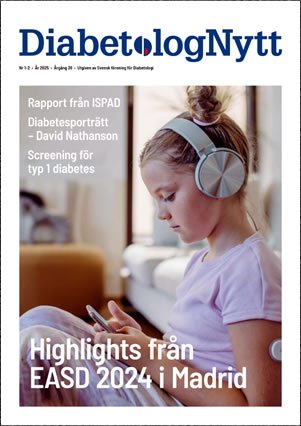Going to bed late, sleeping in, and eating a big dinner were all associated with poorer glycemic control in a new study of 194 patients with type 2 diabetes.
The research is the first ever to examine the relationship between diabetes control and patient ”chronotype,” a term referring to an individual’s propensity to be more of a ”morning person” or a ”night owl,” explain Sirimon Reutrakul, MD, CDE, associate professor of medicine at Rush University, Chicago, Illinois, and colleagues in their paper published online May 1 in Diabetes Care.
The implications of the current study, she said, are that people with type 2 diabetes who are accustomed to staying up late might do well to get to bed earlier, wake up earlier, eat proportionately less for dinner, and try to keep as regular a schedule as possible.
”In our study, both factors, the calorie distribution and chronotype were related, but both…were independently associated with glycemic control, so I would assume that if you change one and not the other you’d still get some benefit. And if you change both, there would be more benefits. It would need to be proven true in an interventional study, but that’s what the analysis is suggesting,” she told Medscape Medical News.
Sleep Habits, Caloric Distribution Affect Glycemic Control
People who go to bed late and sleep in late — ie, a ”late chronotype” — typically have a greater degree of ”circadian misalignment” between their actual sleep-wake pattern and their natural body clock, Dr. Reutrakul and colleagues explain. Previous studies have linked such misalignment with a host of ailments, including coronary artery disease, metabolic syndrome, and impaired glucose tolerance.
Moreover, the late chronotype is also associated with the consumption of a greater proportion of calories at dinnertime, another pattern linked to adverse metabolic effects, they say.
In their study, the 194 patients had a mean age of 58 years and diabetes duration of 11 years. Most were obese, with an average body mass index (BMI) of 35.6 kg/m2. Average glycated hemoglobin (HbA1c) for the group was 7.5%.
Patients with later chronotype tended to be younger and have a higher BMI and more depressive symptoms. They also had significantly higher HbA1c levels and were more likely to use insulin, but there was no difference by diabetes duration or complications.
The primary outcome measure was a metric of chronotype, ”mid-sleep time on free days (MSF),” defined as the midpoint between sleep onset and wake time, with a correction for the fact that sleep time is more likely to be constrained — giving rise to ”sleep debt” — on weekdays than on weekends.
After adjustment for demographic and other relevant variables, MSF was significantly associated with HbA1c (P = .001). Each hour delay in MSF was associated with an increase in HbA1c of 2.5% of its original value.
For example, given the same characteristics otherwise, an HbA1c of 8.0% for the earliest chronotypes in this cohort would be expected to be 8.8% in the latest chronotypes, Dr. Reutrakul told Medscape Medical News.
In another analysis, MSF was significantly associated with the proportion of daily calories consumed at dinner (P = .006), and in turn, the latter was also significantly and independently associated with HbA1c (P = .02).
Future Research Should Examine Changing Behaviors
Dr. Reutrakul cautioned that this study looked only at associations and therefore does not prove cause and effect. ”I think it remains to be seen if we change these behaviors whether it would change glycemic control. That would be a subject for further research,” she told Medscape Medical News.
However, she also pointed out that the difference in HbA1c between those with the earliest and latest bedtimes approximates the potency of some diabetes medications. ”I’m not saying that changing the bedtimes would be as strong as the medications, but this may be something to be tested.”
Dr. Reutrakul has reported no relevant financial relationships. Disclosures for the coauthors are listed in the article.
Diabetes Care. Published online May 1, 2013. Abstract
From www.medscapetoday.com
Chronotype Is Independently Associated With Glycemic Control in Type 2 Diabetes
- Sirimon Reutrakul, MD, 1Section of Endocrinology, Department of Medicine, Rush University Medical Center, Chicago, Illinois
Abstract
OBJECTIVE To examine whether chronotype and daily caloric distribution are associated with glycemic control in patients with type 2 diabetes independently of sleep disturbances.
RESEARCH DESIGN AND METHODS Patients with type 2 diabetes had a structured interview and completed questionnaires to collect information on diabetes history and habitual sleep duration, quality, and timing. Shift workers were excluded. A recently validated construct derived from mid-sleep time on weekends was used as an indicator of chronotype. One-day food recall was used to compute the temporal distribution of caloric intake. Hierarchical linear regression analyses controlling for demographic and sleep variables were computed to determine whether chronotype was associated with HbA1c values and whether this association was mediated by a higher proportion of caloric intake at dinner.
RESULTS We analyzed 194 completed questionnaires. Multiple regression analyses adjusting for age, sex, race, BMI, insulin use, depressed mood, diabetes complications, and perceived sleep debt found that chronotype was significantly associated with glycemic control (P = 0.001). This association was partially mediated by a greater percentage of total daily calories consumed at dinner.
CONCLUSIONS Later chronotype and larger dinner were associated with poorer glycemic control in patients with type 2 diabetes independently of sleep disturbances. These results suggest that chronotype may be predictive of disease outcomes and lend further support to the role of the circadian system in metabolic regulation.
- Nyhetsinfo
- www red DiabetologNytt


